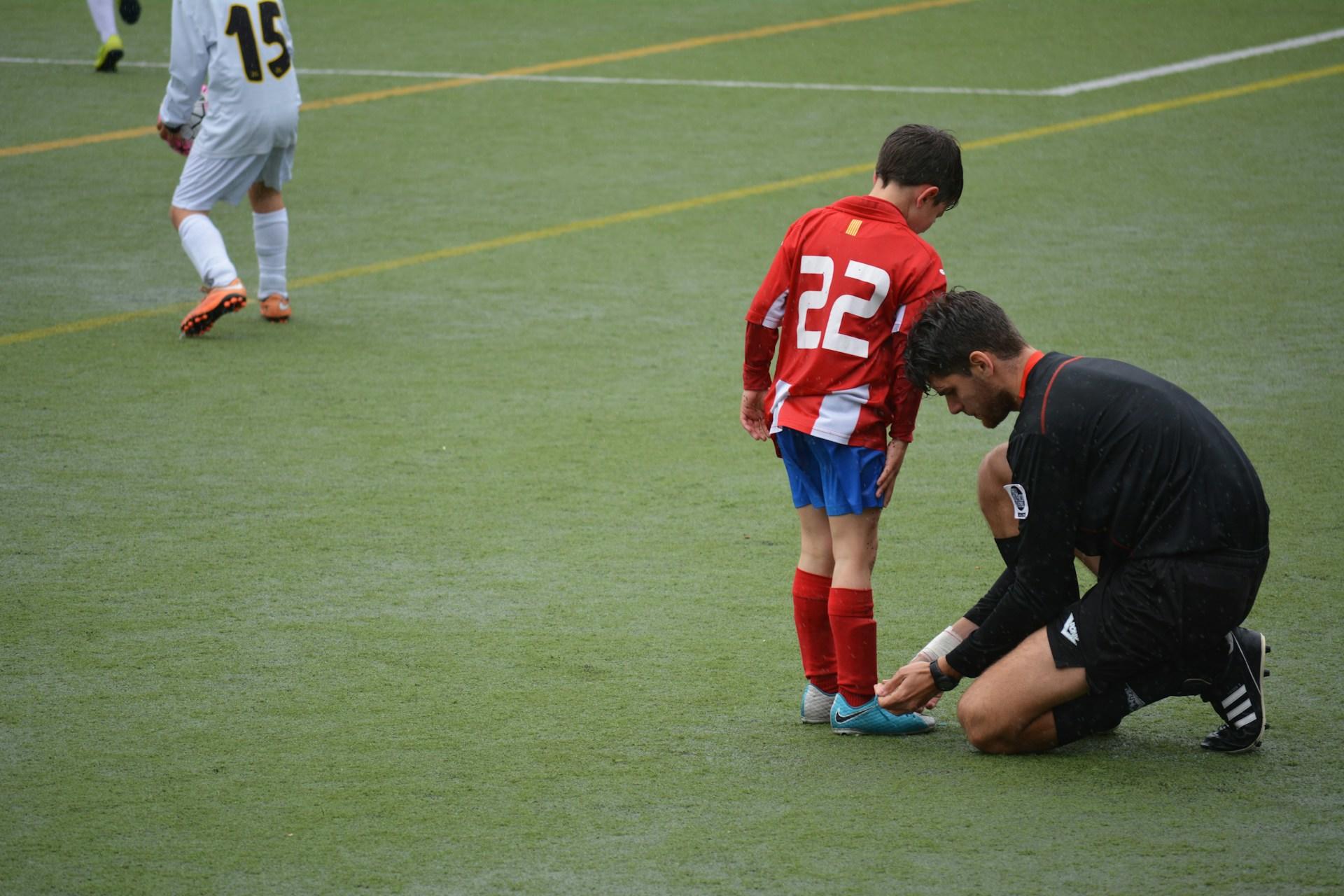Time is only linear for engineers and referees.
Craig Ferguson
It might not appear so at first glance, but referees and engineers have a lot in common. They must know the laws of their 'game' - physics, for engineers; football for this sport's referees. They're typically invisible; cricketer Alan Lewis said the objective of a referee is not to get mentioned. And, like engineers, referees undergo extensive training.
Granted, a referee's bad call won't endanger anyone, but an engineer's bad decision could cost lives. However, refereeing means embodying the ethics of sports: fairness, integrity, and respect. Should those qualities be what you most admire about football, you might want to become a referee. This article details how to do so.
- Attend many football games, focusing on referees' actions more than the players
- Register with your local football club or association
- Pass the physical certification process
- Attend training courses
- Pass your certification exam
- Take higher-level certification courses and exams

Attending Football Matches

There exists two ways to attend a game. As a casual spectator, you might get up and wander around, to the snacks stand or to socialise. You may focus on your phone, and only look up when the crowd starts roaring. If your team isn't winning, your frustration might cause you to miss crucial details.
Conversely, as an objective observer, you're intent on monitoring the action. Before and during the match, you will study the teams, and their players, looking for patterns of behaviour and the resulting effects.
More importantly, you will track the referees, and justify - or criticise, their rulings. You will monitor referees' actions; the one on the pitch as well as the assistant referees on the sidelines.
As an aspiring football referee, you should pay close attention to referees' hand signals. Remember that the best refs are invisible. So, intently seeking them out gives you access to their true impact on the matches' outcomes. You must mark this distinction ahead of making your commitment to becoming a football referee.
How to Become a Referee in Football: Register
The process for becoming a football referee varies slightly from one country to the next. Furthermore, some clubs or regions may have requirements that don't feature elsewhere. However, the process for becoming a football referee remains the same, no matter where. It starts with registering your interest.
Your local football club or association is your entry point. There, you can inform yourself on the steps your region and country require to certify as a referee.
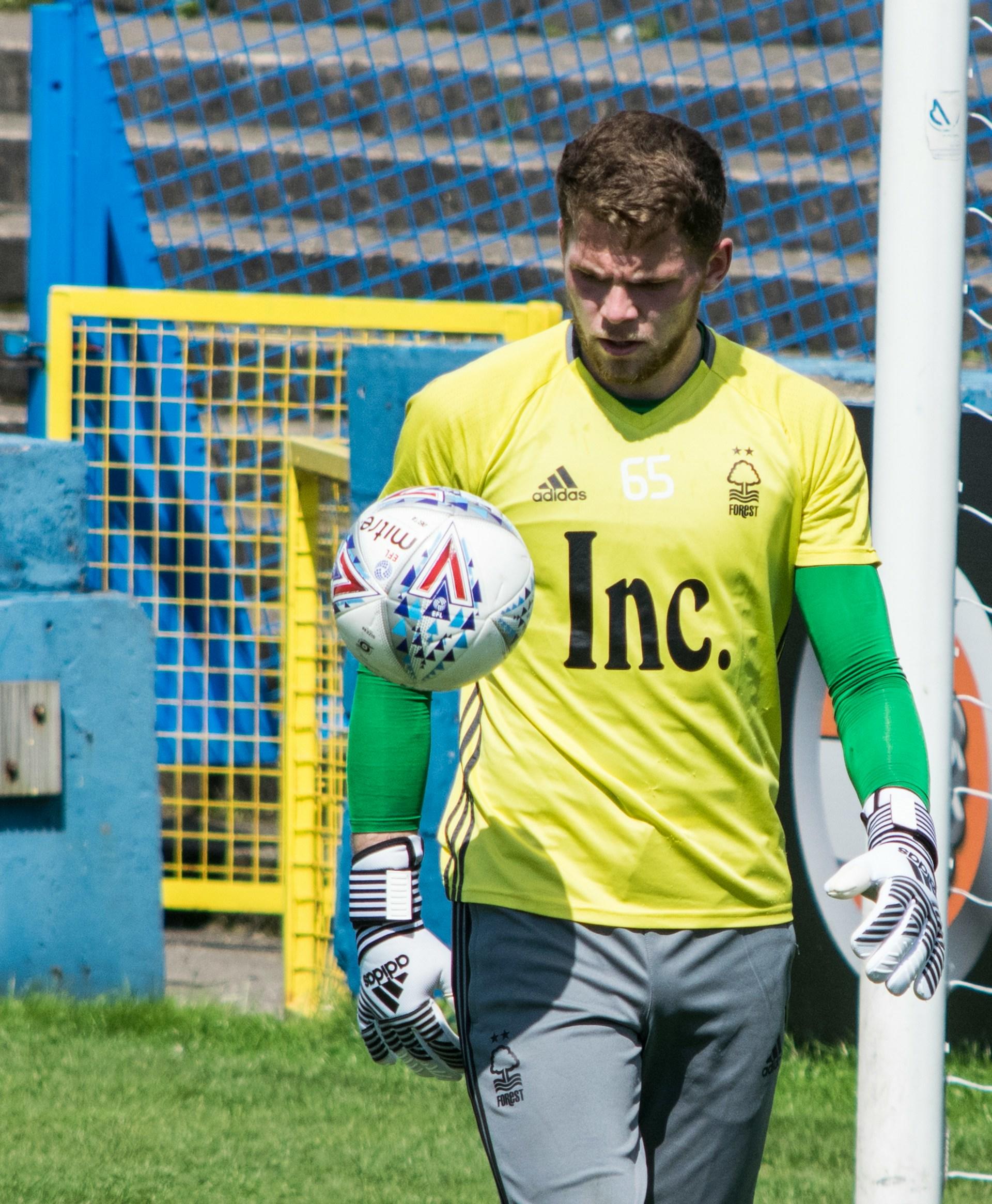
Note that, if your club doesn't have the resources to start your referee training, they may direct you to an office further away.
You don't need any experience to learn how to referee, but you should know a bit about your sport. You may have to share why you want to become a referee, and what your plans are. For instance, is refereeing Under-19 (U-19) matches enough to satisfy your longing? Or do you want to officiate World Cup events?
You will likely have to pay an initial membership fee, and club dues, for as long as you associate with that club. Also, you may have to buy your own referee uniforms, if your club doesn't make them available. Note how little some referees make in various leagues, so these small outlays shouldn't hurt your wallet too much. In Australia, the getting-started cost is around $200.

The Physical Certification Process
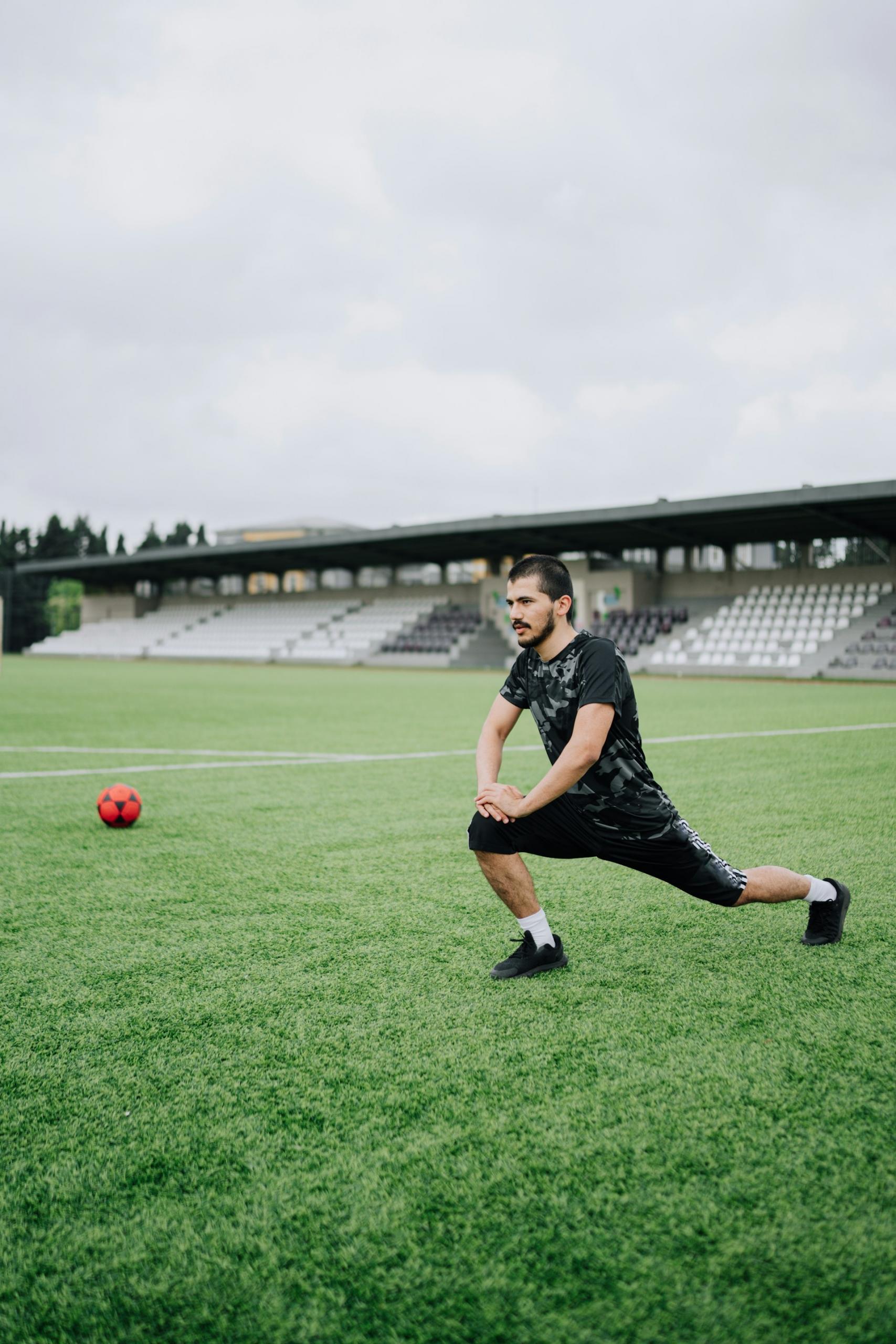
It might seem that certifying your physical abilities to referee, ahead of taking training courses, is putting the cart before the horse. Refereeing is a physically demanding position. If a candidate doesn't have the stamina to keep up with a 90-minute match, taking referee courses is pointless.
Football matches call for a lot of running. Teams may swap their players out, but referees stay for the whole game. Furthermore, unlike marathons - running a set course along a path, refereeing a match involves sprints, sudden stops, pivots and more.
The timing for physical certification varies. In Australia, future referees take their online laws of the game course first, and then the physical challenge. US football clubs reverse this process.
The physical certification process starts with a doctor's clean bill of health, including vision, hearing and mobility. Once they certify you as a specimen in fine form, your physical challenge begins. Each club and country has different requirements. Here, we outline those for Australia, the United Kingdom (UK), and the United States (US).
Physical Certification Australia
- Ten Laps Alternating 150m run/50m walk
- Men: complete in under 25 minutes
- Women: complete in under 30 minutes
- Minimum age: 13
Physical Certification UK
- Depends on referee's level (see below)
- Level 4: 2x50m sprints under 7.5 seconds
- Level 3: 15 seconds sprint; 22 seconds walk; 6x40m sprints
- Minimum age: 14
Physical Certification US
- 6x40m sprints
- 40 x 75m run - 25m walk
- Sprints men: 6 seconds; women: 6.40 seconds
- Intervals Men:15s run / 18s walk; Women: 17s run / 20s walk
- Minimum age: varies by state
Unless you're under 18 years of age, count on having a background check, particularly if you plan to referee U-19 games. In some countries, providing such a document is a requirement while, for other clubs, it's an added testament to your trustworthiness. Even the most famous football referees maintain this certification.
Training Courses
Some Football Associations insist on their student-referees taking an aptitude test before their physical challenge. These are typically online, a combination of multiple choice and short-answer questions. Passing this assessment, along with the physical challenge, paves your way into referee training courses.
These courses blend online and in-person formats. The online portion includes several teaching modules (five, in the UK; four, in Australia).
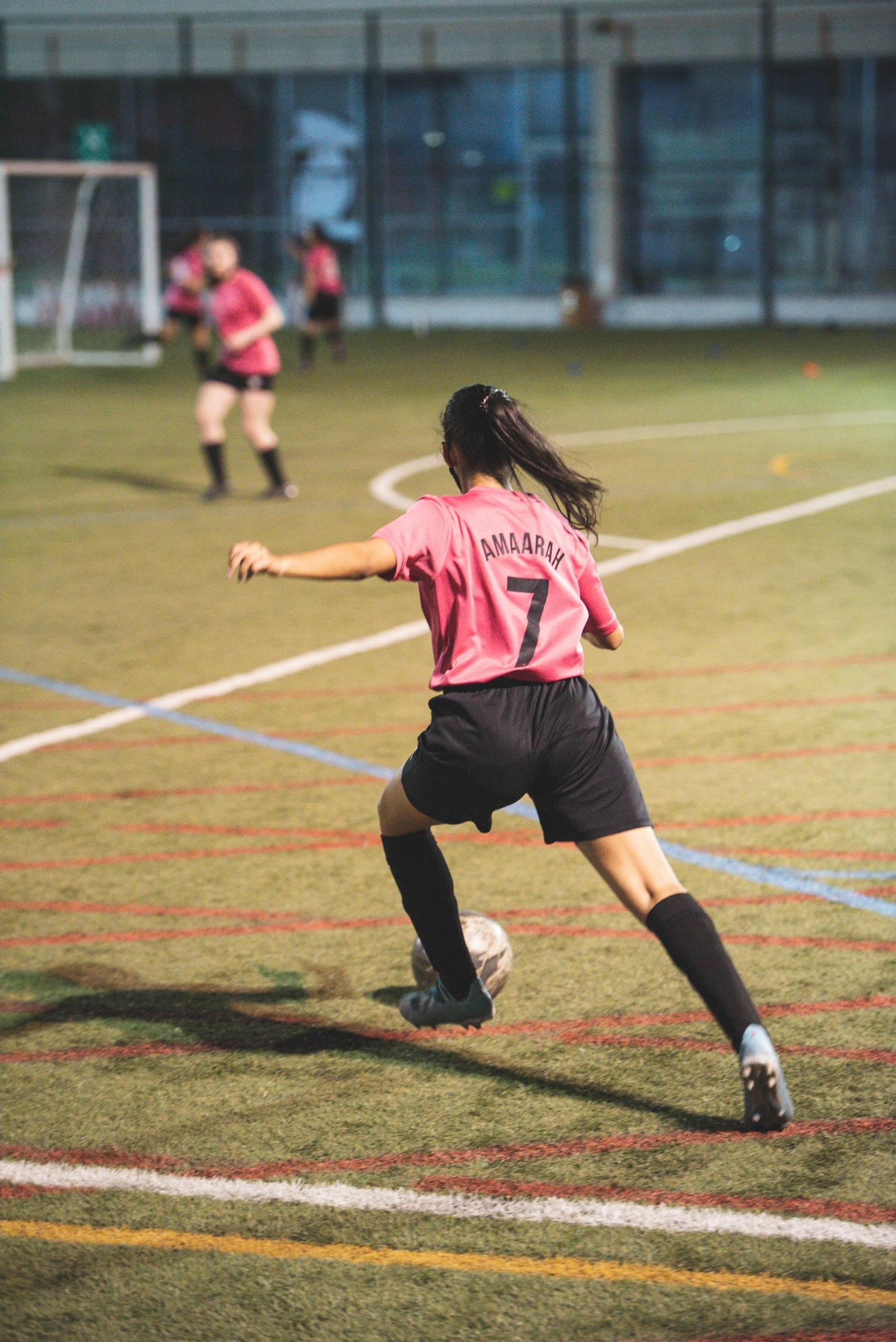
These courses teach you everything you need to know about football refereeing, from the rules of the game to game management.
Referees have much to prepare before each match, and a lot to deal with during them. These training modules arm you with strategies to deal with fouls and unsporting behaviour; and even how to defuse violence. That's alongside essential training such as learning the hand signals, and how to restart matches.
Once done with your online modules, you'll enter the face-to-face component. This involves going through training room tasks, and various on-pitch activities. That's your chance to demonstrate your mastery of communication, pitch management, and dealing with bad behaviour.
Certification Exams
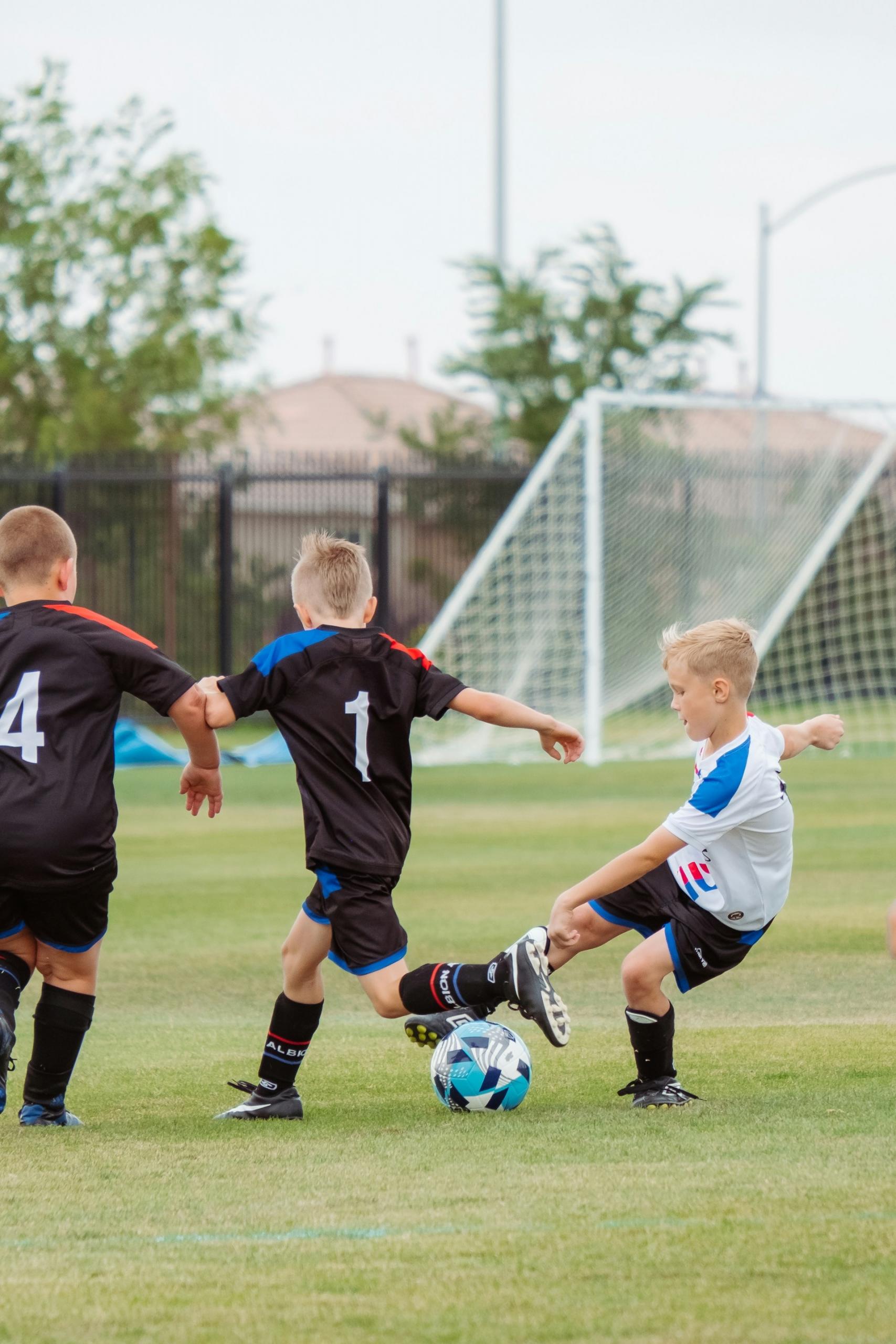
All of this work leads you to your football referee certification exam. This ordeal typically covers everything you learned in your training course. You'll answer questions about the laws of the game, and what hands signs you use to communicate on-pitch conditions. You may also have to resolve situations like fighting, or settling a call dispute.
And then, you must referee a few games, before earning your full certification. In the UK, Football Association rules require five games. In Australia, Football Australia sets the standards.
Football refereeing is not a single-certification proposition. You will have to recertify every few years (4, in the UK and Australia). This process includes submitting again to the physical challenge.
That's not a bad thing. A conscientious referee wouldn't rest on their laurels. They would strive to reach the next higher grade.
Continuous Learning

Every football referee starts low-grade (9 or 8 in the UK/US; 4 in Australia). At those levels, they may referee youth games, or function as an assistant referee. Few referees want to stay there; moving up in grade offers more opportunities.
Most strive to become a county, state, or national referee. Among the additional training requirements, one must have refereed a certain number of games. And, minimum age requirements apply. Of course, their record must be free of any disciplinary action. This table shows each grade's requirements, as well as their limitations.
| Grade | Minimum Age | Assignment(s) |
|---|---|---|
| 9 | No minimum age | Local referee 'Young player' matches 6 per side |
| 8 | No minimum age | Local referee All youth games Assistant referee |
| 7 | Minimum 17 years old | Local referee All youth games Mixed leagues Assistant referee for amateur games, excluding top-division matches. |
| 6 | Minimum 18 years old | State referee All youth games Amateur games through second division. Assistant referee for top amateur division Amateur Cup games. |
| 5 | Minimum 19 years old | State referee All youth and amateur games. Assistant referee in professional league games. International Cup games. |
| 4 | Minimum 23 years old | National referee All games through third division professional leagues. Assistant referee for all games through second division professional. |
| 3 | Minimum 23 years old | National referee. All games except FIFA international matches. Consideration for international service. |
| 2 | Minimum 25 years old | International AR specialist Assistant referee on international matches. |
| 1 | Minimum 25 years old | International referee Head referee for World Cup and international matches. |
For referees passionate about the game, a Fédération Internationale de Football Association (FIFA) accreditation is the ultimate prize. Attaining it involves many years as a local, then a national-grade referee. Grade 2 accreditation is one level removed from officiating international events.
To prove their bona fides, prospective FIFA referees must pass 2 intensive fitness challenges. Through them, they will demonstrate the speed, skill, and stamina required to referee a top-tier match. The standards these referees must meet are gruelling.
The first fitness test requires referees to run 40 meters 6 times. Candidates are allowed 1 minute and 30 seconds between each sprint. Male referees must complete this challenge within 6.2 seconds.
The second test revolves around high-intensity runs. Candidates run 150 meters in 30 seconds, and then walk 50 meters in 35 seconds. This cycle repeats 20 times, which amounts to 10 laps around a track.
The best female referees also undergo this ordeal. However, they have slightly higher time allowances - say, 6.8 seconds rather than 6.2 seconds. These ordeals roughly match the start-stop nature of referees' actions on the pitch.
However, they do not test referees' ability to anticipate players' next moves and race ahead to monitor them. That is a skill only experience can hone. The sooner you start your career as a football referee, the sooner you will develop such intuition. Perhaps a private tutor can help raise you to that standard?
Summarise with AI:

